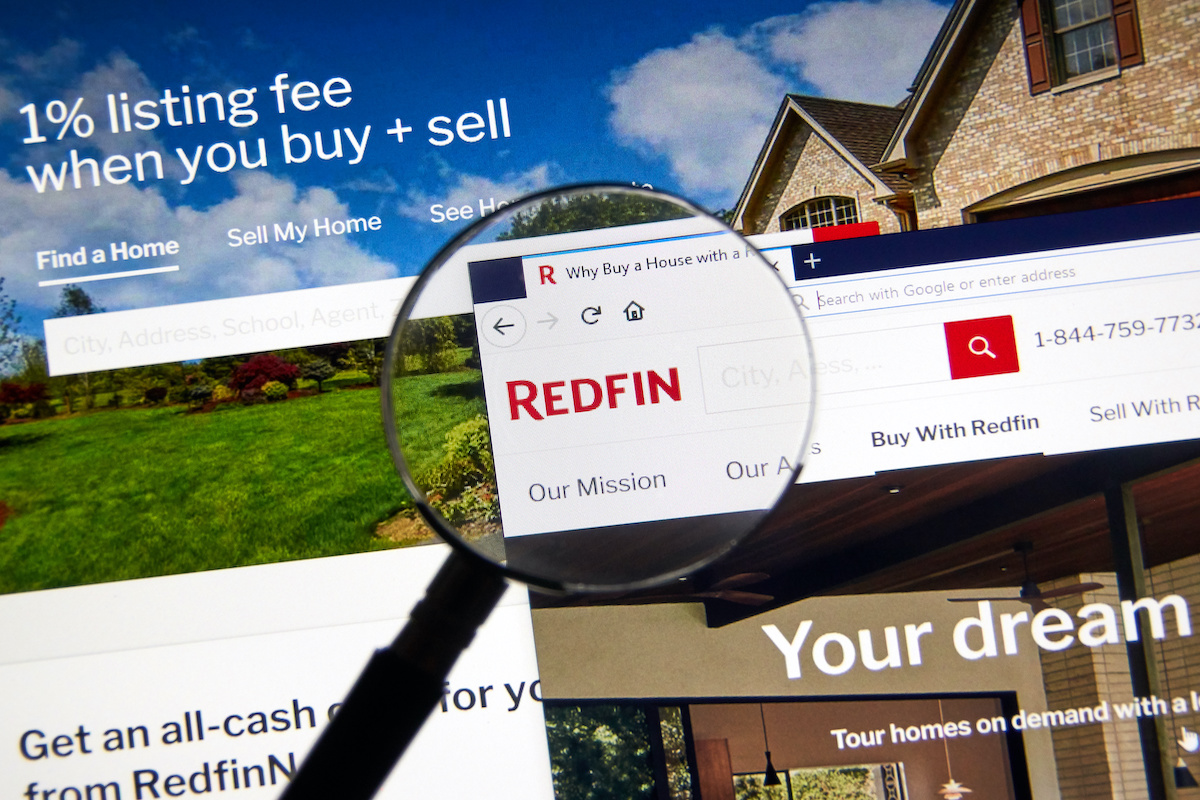One of downtown Los Angeles’ familiar tenants is pulling up stakes as the office rental market continues to contract from shrinking occupancy stoked by the pandemic.
Financial services firm Wedbush Securities has begun its move from a prominent office tower to Pasadena, where it will occupy much smaller offices meant to accommodate employees who now work remotely much of the time.
The firm is leaving behind Wedbush Center, which overlooks the Harbor Freeway and sports two signs on top bearing the company name. Wedbush has been headquartered in the Wilshire Boulevard building since 2001 and its lease expires next year.
“It’s a big deal, a very big decision for the firm,” President Gary Wedbush said of the move. “The pandemic and COVID created a different kind of office for us.”
With most employees required to be in the office only a third of the time, Wedbush is creating an office oriented toward shared workspaces that can be used as needed by various employees instead of assigned desks, he said.
The move was also influenced by the changed nature of downtown’s financial district since the COVID-related shutdown. Thousands of office workers departed, and they probably won’t return again in pre-pandemic numbers. Many shops and restaurants remain closed and office tenants have said the streets feel less safe than they used to.
Although Wedbush said “downtown has been fantastic for us,” other locations have become more attractive. “There are places like Pasadena that seem to have recovered more fully from the pandemic than downtown Los Angeles has. That was a part of the decision-making” to move.
The firm leases more than 100,000 square feet at Wedbush Center but will occupy about 20,000 square feet in an office complex on Lake Avenue in one of Pasadena’s leading commercial districts.
“The amenities on Lake Avenue are fantastic,” Wedbush said. “Casual restaurants to really fine dining, fitness centers — it just had everything.”
Wedbush’s move, which will take place formally in the first half of 2025, reflects a trend that has been affecting downtown and much of Los Angeles County for the last few years, real estate brokerage CBRE said in a recent report on office leasing.
“The Greater Los Angeles office market continued its search for the bottom” in the third quarter, CBRE said, as both tenants and landlords “navigate the ongoing supply and demand imbalance exacerbated by the shift to hybrid and remote work.”
Companies adapting to new work models are leaving behind large chunks of office space, and the change is particularly noticeable downtown, where CBRE said overall vacancy is more than 30%, triple the amount considered to be a healthy balance between tenant and landlord interests.
Wedbush Securities’ shift to hybrid work, with people in the office some days and not others, created the chance to make a different kind of office with a smaller footprint and more shared spaces to collaborate or work away from a traditional desk, Wedbush said.
About 70% of the office will be considered “hotel” space where employees can choose a workstation on days they are present while the remaining 30% will be offices for financial advisors and others who need privacy to meet with clients.
A stark difference will be that the shared workstations will be around the windows with views of the city and the offices will be in the center of the building. In the old arrangement, individual offices were much larger and occupied the prime space along the windows, Wedbush said.
One of the two floors Wedbush Securities leased in Pasadena has a rooftop deck that Wedbush plans to make into an outdoor office space with conference tables, workstations where people can plug in their computers and places to unwind.
“It’s not just going to be a couple of tables and umbrellas,” he said. “The opportunity to build out this new space was a big driver in us moving out of our building that we’ve loved for so, so many years.”
Wedbush Securities was co-founded in 1955 by Wedbush’s father, Edward, in Los Angeles and now has close to 900 employees in 28 cities across the country, Wedbush said. “We’re really proud of our Los Angeles legacy.”
Wedbush’s decision to dramatically shrink its headquarters underscores not only the continued struggles of the office rental market in the wake of the pandemic but broader vulnerabilities in commercial real estate throughout L.A. County.
A report released by real estate services firm NAI Capital said that in the third quarter of 2024, Los Angeles County’s commercial real estate market experienced a sharp 18.4% year-to-date decline in sales volume and a rise in real estate cap rates, a metric used to estimate an investor’s rate of return based on the income that the property is expected to generate.
It may be a low point in the real estate cycle for property sales, NAI Capital Chief Executive Chris Jackson said.
“With cap rates on the rise, California regulations, and high interest rates throughout 2024, the commercial real estate market took a bit of a dip” with office properties “hit particularly hard,” Jackson said. “However, with interest rates expected to decline more substantially in 2025, we anticipate a significant rebound in real estate sales.”
Sales are being further limited by taxes and government fees, particularly Measure ULA, the property transfer tax in Los Angeles that took effect in 2023, the report said. Dubbed the “mansion tax,” Measure ULA imposed a 4% tax on real estate transactions over $5 million and a 5.5% tax on those exceeding $10 million. In June, those thresholds increased to $5.15 million and $10.3 million.
The tax has contributed to a nearly 40% year-over-year drop in sales of office, retail, industrial and multifamily properties, or $1.9 billion less than last year’s total, the report said.



















 English (US) ·
English (US) ·